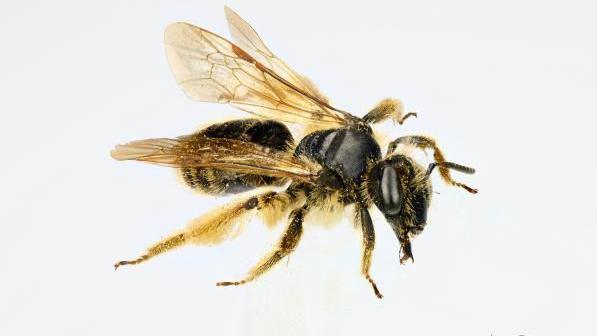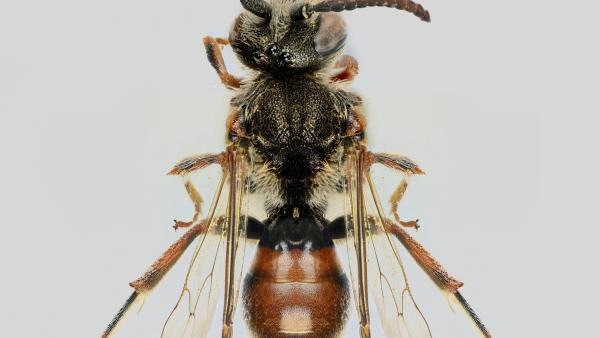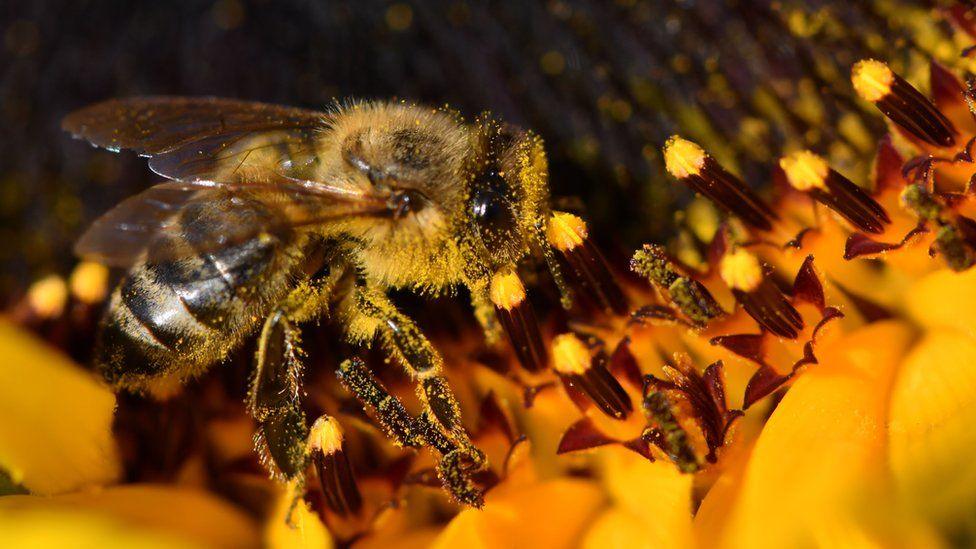Rare bee species found thriving in Walsall

The Cats Ear Mining Bee is classified as a near threatened species, the council said
- Published
Two rare bee species not seen locally for decades have been spotted thriving at a nature reserve in Walsall.
The Cats Ear Mining and Nomad bees were seen by a researcher at Barr Beacon Local Nature Reserve, external, the council said.
University of Birmingham PhD student Aaron Bhambra described his find as "fascinating".
"There are only a handful of sites in the region where both species are known to be found together," he said.

The Cats Ear Nomad Bee was also spotted by Aaron Bhambra at the site
Entomologist Mr Bhambra described the bees as "very distinctive" and about the size of a honeybee, with golden hairs on their abdomen.
He added the discovery underlined the importance of suburban green spaces.
"We've been monitoring the site for two years now," he said. "To have both of them in one site is very interesting."
Walsall Council said both species were classed as near threatened in Britain.
The authority began restoring heathland at the nature reserve 20 years ago, spreading wildflower seeds and creating space for ground nesting bees.
Councillor Gary Flint said he believed the presence of the bees was testament to the council's conservation work.
"With only a handful of sites in the West Midlands known to harbour good numbers of both species of bee, Barr Beacon has emerged as a critical sanctuary," he said.
The site forms part of the Purple Horizons Nature Recovery Project, external, which aims to restore habitats between Cannock Chase and Sutton Park.
Project manager Chloe Hardman said it was a "brilliant example" of organisations working together.
"Knowing that our actions are helping these threatened bee species to survive gives our partnership a real boost. “

The bees were seen at Barr Beacon nature reserve by Mr Bhambra
Follow BBC West Midlands on Facebook, external, X, external and Instagram, external. Send your story ideas to: newsonline.westmidlands@bbc.co.uk, external
Related topics
- Published7 March 2024

- Published4 March 2024
